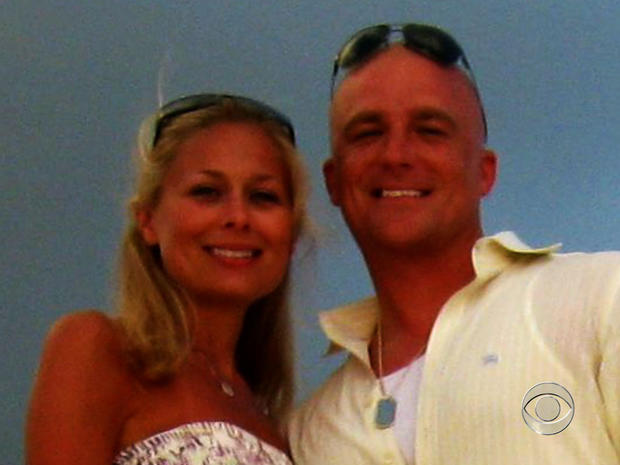New technology to keep drunk drivers from driving
(CBS News) CHARLOTTE, N.C. - The message from police to party-goers this New Year's Eve is: "Drive sober or get pulled over."
There were nearly 10,000 deaths from drunk driving in the U.S. last year, down 2.5 percent from the year before.
There is now a debate over technology that could prevent drunk drivers from starting their engines.
On October 29, 2010, Matt and Meredith Eastridge were pregnant with their first child, a son.
The same night, David Huffman spent the last two hours of his life getting drunk. He put away the equivalent of 15 drinks, each one recorded on a security camera.
The 25-year-old stumbled out of the Charlotte bar and three minutes later, Matt and Meredith Eastridge were critically injured when Huffman, with a blood alcohol content of .23 and driving 100 miles per hour, hurtled into their SUV.
"I remember saying look at that, look at that car. That was the last thing i remember" before being hit head-on, Meredith said.
Six months pregnant, Meredith lost their baby.
"I think about him every day, how old he would be and what he would be doing," Meredith said.
"There were multiple times in that night this tragedy could have been avoided," Matt said.
1 in 3 use phones, text while crossing the roadMother's forgiveness gives convict second chance
After tragedy, Russia rethinks drunk driving
Bud Zaouk is leading a research team creating technology that could help save 10,000 lives a year.
"One is breath-based and the other is touch-based. The idea is to develop a sensor that could detect if anyone is above the legal limit of .08 and prevent them from moving the vehicle and driving," Bud said.
With the touch-based detector, "you press the start button and it starts the vehicle. And it will be a small infrared light that shines inside the finger," Bud said.
The infra-red light looks for alcohol in the finger's tissue.
"Alcohol has its own unique optical signature," Bud said, and if the optical signature registers above .08, "then the vehicle prevents you from moving."
The sensor in the breath-based approach is located around the steering wheel.
"That infra-red light excited the molecules and allows you to find out how much alcohol you have in the breath. It's non-contact, non-invasive," Bud said.
The $10 million funding for Bud Zaouk's project is split between 16 carmakers and the federal government.
However, it's opposed by the American Beverage Institute, which represents 8,000 chain restaurants in the U.S.
The group made the following statement: "Drunk driving fatalities are at historically low levels. We shouldn't try to solve what's left of the drunk driving problem by targeting all Americans with alcohol sensing technology."
Bud Zaouk said the technology still needs work.
"I think at this stage we are probably looking at eight to 10 years, when you would start seeing it inside vehicles," Bud said.
The Eastridges now have a daughter, Sloane. They hope this technology will be standard in new cars by the time she is old enough to drive.

